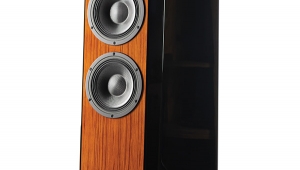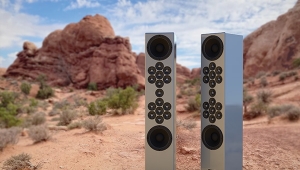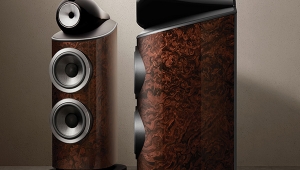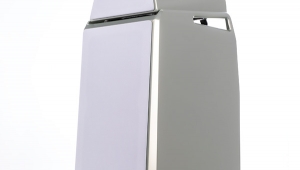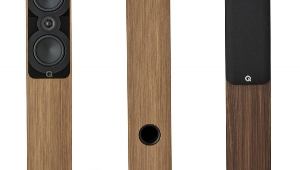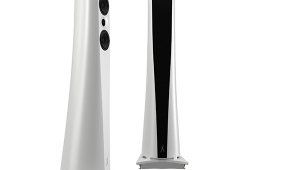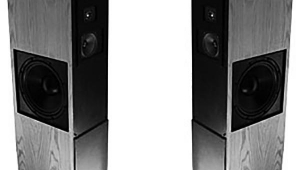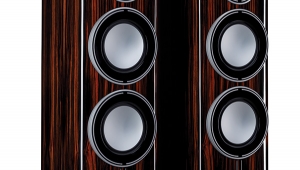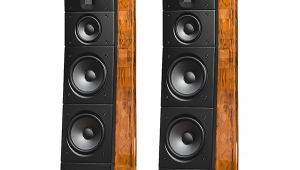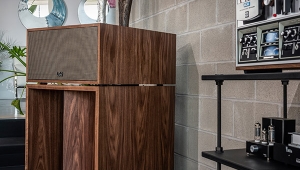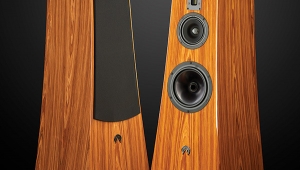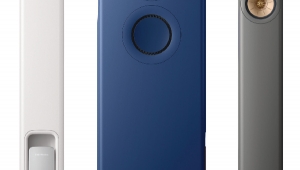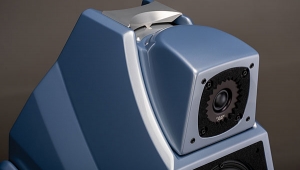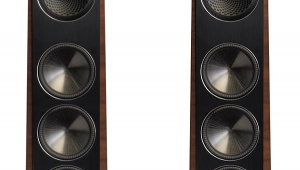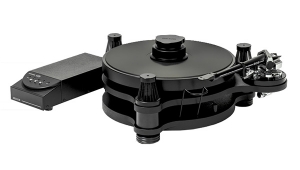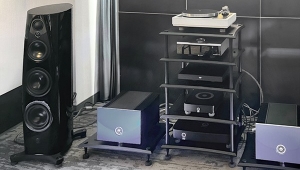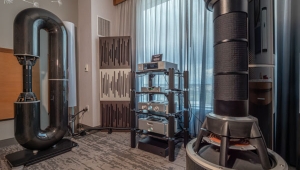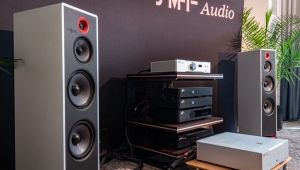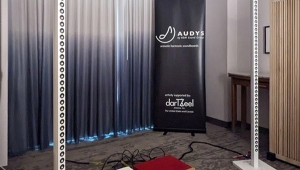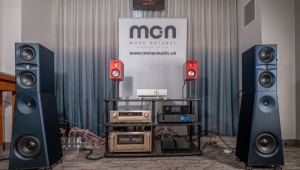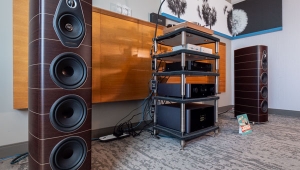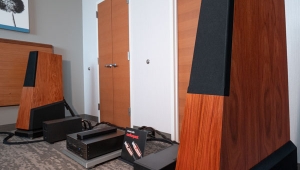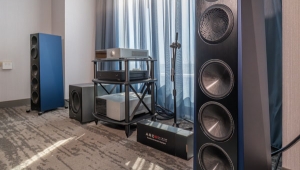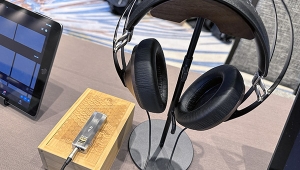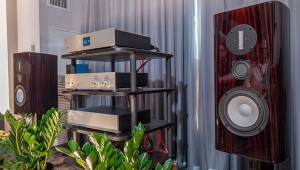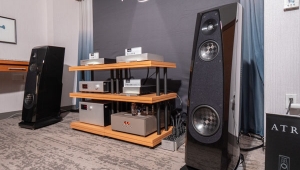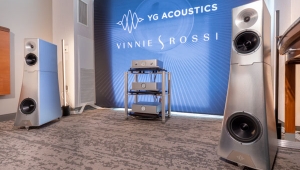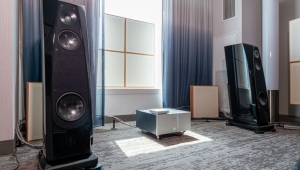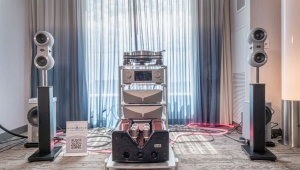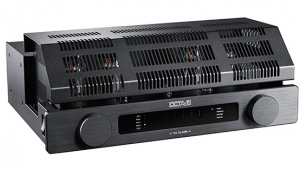| Columns Retired Columns & Blogs |
Thiel CS7.2 loudspeaker Page 4
The most striking thing about the Thiels' imaging—and it was striking—was the uncanny density of those images. It was as if the Thiels took all of the energy that other speakers spread into a diffuse orb around an instrument's position, and coalesced and condensed it into the image itself. Focus, precision, specificity . . . all these words are accurate, but don't do justice to the effect, or its impact on the listening experience. Switching from my Dvoraks to the CS7.2s wasn't like adjusting the focus; it was more like getting glasses for the first time—and simultaneously acquiring depth perception.
I'm certain that part of this focus, dimensionality, and density stems from the CS7.2's superb performance on transients. The temptation is to say that the CS7.2 is fast, but that's not quite right. It certainly sounded fast when the music demanded it, but actually the CS7.2 was incredibly precise and accurate. If I listened carefully, it was obvious that notes were starting and stopping very sharply, with a noticeable lack of dulling or softening, and never a hint of ringing or overshoot. John Atkinson commented that "the notes start and stop so quickly . . . it's really quite striking."
If I just listened to the music, however, the CS7.2's transient fidelity came across as an energy or immediacy that made everything seem more realistic and alive. I often found myself digging out live recordings and listening late into the night, just because the Thiel's immediacy made the performances so riveting. Rickie Lee Jones was a frequent late-night companion, via Girl at Her Volcano (Warner Bros. 23805-1B) and Naked Songs (Reprise 45950-2). But John McLaughlin's, Al DiMeola's and Paco DeLucia's Friday Night in San Francisco (Columbia KC 47152) was the stunner. I could stack up the adjectives—tangible, dimensional, intimate, immediate—and still not really describe what the Thiels did for live recordings.
Perhaps a Gen-X friend from work said it best. Christian stopped by one evening "to hear Miles Davis' Kind of Blue on a good system." I put on the Classic reissue (Columbia/Classic CS 8163), and within seconds he was mesmerized. At the end of "So What" he turned to me and said, "I've never heard anything like this. It's like being at a concert—it's like it's happening right here, right now." I think that, more than anything else, it's the CS7.2's precision—its dynamic fidelity—that gives rise to this feeling of immediacy.
As a side note, I can thank the Thiels—and the rest of the system—for creating another audiophile music-lover that night. Christian and I listened to jazz for hours, chatting and alternating between my favorites and discs that he'd brought. He'd always loved music, and had been aware of the High End's existence, but had never looked into it. "Listening to recorded music," he said, "just never worked for me. It's just never been compelling, something I would just do. But this . . . this is different." Christian's a grad student, so buying a pair of CS7.2s is simply out of the question; but he did end up buying a nice system (Rega Planet CD, Luna amplifier, Meadowlark Kestrels), and now spends his evenings listening to music.
Jim Thiel's final design goal, dynamic fidelity, goes hand in hand with the CS7.2's excellent reproduction of transients. I noted earlier that dynamic gradients might be slightly larger in the bass and midrange than in the treble. I also noticed that while the 7.2 can effortlessly reproduce huge, explosive dynamic gradients and can differentiate very fine dynamic shadings at low to moderately loud levels, it lacks the last bit of dynamic resolution at its very loudest levels. Full orchestral climaxes, for example, didn't have quite the impact of the explosive guitars on Friday Night in San Francisco, or the immediacy of Rickie Lee Jones' soft, breathy voice on "Chuck E.'s In Love." But I don't want to make too much of this; it's a minor point that has as much to do with my room and the partnering amplifiers as it does with the CS7.2 itself.
Summing up
As Thiel Audio's current flagship, the CS7.2 is the fullest realization to date of Jim Thiel's process and goals. To understand those goals—achieving tonal, spatial, transient, and dynamic fidelity—is to understand this speaker and its characteristics. The CS7.2 is absolutely superb in these areas. It combines and exceeds all the positive attributes of other Thiels I've auditioned, while ameliorating most of their shortcomings.
The CS7.2 is also an absolutely top-flight speaker by any standard. It is the finest loudspeaker I've had in my system, which, over the years, has housed large designs from the likes of Infinity, Audio Artistry, Magnepan, and Genesis. Even if I expand the circle to include speakers I've heard extensively but have not owned—Aerials, Hales, Duntechs, Quads, Wilsons—the CS7.2 would remain my choice because with the CS7.2s, I've spent less time thinking about tradeoffs and compromises and more time listening to music.
The CS7.2 requires a substantial commitment to realize its full potential. Although it works reasonably well with minimal effort, "reasonably well" isn't what such speakers are about. For optimal integration, it needs careful positioning in a medium-to-large room, and possibly some room treatment. It must also be mated with the best possible components, and really needs to be driven by a superb, very powerful amplifier. Even then, the CS7.2's transparency and resolution will clearly reveal the characteristics—good and bad—of the setup and upstream components. Get it right, however, and the CS7.2 is as good as anything available.
The bottom line: If I could afford to buy the CS7.2s, I would. I'm going to miss the level of performance my system has reached during their tenure here. As it is, I enthusiastically recommend them to anyone who's seeking, and willing to commit to, a viable candidate for the best speaker available. $13,500/pair may seem expensive; but in the world of cost-no-object super systems the CS7.2s' performance places them in, it isn't. Add the construction quality, the simplicity and ease of use, and the associated savings in amps and cables, and the Thiel CS7.2 is actually good value.
- Log in or register to post comments
